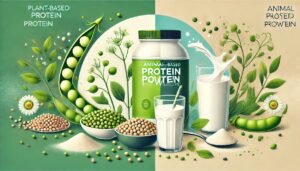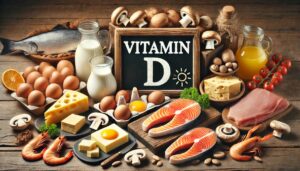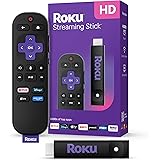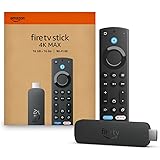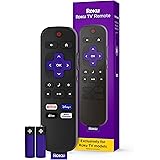Building a strong immune system is key to staying healthy, especially in today’s fast-paced world. Your immune system is your body’s first line of defense against illnesses, and zinc—a vital trace mineral—plays an important role in keeping it strong and balanced. Although zinc is needed in only small amounts, its impact on immunity is enormous.
This article breaks down how zinc supports the immune system, the dangers of zinc deficiency, and the best ways to add zinc to your diet for better health.
Why Zinc is Essential for Immunity
Zinc is involved in hundreds of bodily functions, making it a cornerstone of good health. When it comes to your immune system, zinc contributes in these key ways:
• Helps Immune Cells Fight Infections: Zinc activates T-cells, which are responsible for identifying and destroying harmful invaders like viruses and bacteria.
• Supports Antibody Production: Zinc stimulates B-cells, which produce antibodies to neutralize pathogens.
• Reduces Inflammation: Zinc regulates the release of chemicals that cause inflammation, protecting your body from overreacting to infections.
When you don’t get enough zinc, your immune system weakens. This can lead to more frequent colds and infections, slower wound healing, and a higher risk of serious health issues.
How Zinc Protects the Immune System
Zinc helps your body defend itself through several mechanisms:
• Boosting Immune Cell Function: Zinc ensures that immune cells like T-cells, B-cells, and natural killer cells function effectively.
• Protecting Cell Membranes: Zinc stabilizes cell membranes, shielding them from damage caused by harmful substances.
• Stopping Virus Replication: Zinc can block viruses from replicating, helping to prevent their spread in your body.
• Strengthening Enzymes: Zinc powers enzymes that are crucial for immune responses and antioxidant protection.
Research shows that zinc is particularly useful for managing certain immune-related conditions. For example, zinc can reduce the duration of the common cold, ease inflammation in autoimmune diseases, and improve immunity in older adults.
Signs of Zinc Deficiency
Zinc deficiency can happen when your diet lacks zinc-rich foods, your body has trouble absorbing it, or your needs are higher due to certain life stages or conditions. Common symptoms include:
• Frequent Illness: A lack of zinc weakens your defenses, making you more vulnerable to infections.
• Slow Healing: Cuts and wounds take longer to heal without enough zinc.
• Skin Problems: Dryness, rashes, or eczema may signal a zinc shortage.
• Growth Delays: Children with low zinc levels may experience stunted growth.
• Loss of Taste or Smell: Zinc deficiency can dull your senses.
How to Get Enough Zinc Through Your Diet
Zinc is naturally found in a variety of foods. Animal-based and plant-based options can both provide zinc, but their bioavailability (how well your body absorbs the zinc) differs.
• Best Animal-Based Sources: Oysters are the richest source of zinc, followed by crab, beef, chicken, and pork liver. These are highly bioavailable, meaning your body can absorb zinc from these foods more easily.
• Best Plant-Based Sources: Good options include pumpkin seeds, cashews, almonds, lentils, chickpeas, and whole grains. However, plant-based foods contain compounds called phytates that can reduce zinc absorption.
To improve zinc absorption, try these tips:
1. Soak or Ferment Plant-Based Foods: This reduces phytates, making the zinc more accessible.
2. Pair with Vitamin C: Foods high in vitamin C, like oranges or bell peppers, can help your body absorb zinc.
3. Avoid Excessive Calcium: Too much calcium can interfere with zinc absorption, so balance your intake.
The World Health Organization (WHO) recommends the following daily zinc intake:
• Men: 11 mg
• Women: 8 mg
• Pregnant/Breastfeeding Women: 11–13 mg
• Children: 2–11 mg depending on age
When to Consider Zinc Supplements
While most people can meet their zinc needs through food, some groups may benefit from supplements. These include:
• People with Weak Immunity: If you catch colds or infections easily, you might need more zinc.
• Vegans and Vegetarians: Plant-based diets may require extra zinc due to lower absorption.
• Pregnant and Breastfeeding Women: Higher zinc needs during these stages may require supplementation.
However, don’t overdo it. Too much zinc can cause nausea, vomiting, or even suppress your immune system. Stick to the safe upper limit of 40 mg per day unless directed otherwise by a healthcare provider.
The Bottom Line on Zinc and Immunity
Zinc is a small mineral with big benefits for your immune system. It helps your body fight infections, reduce inflammation, and recover faster. To keep your zinc levels optimal, eat a variety of zinc-rich foods like oysters, nuts, seeds, and whole grains. If needed, consider supplements—but always in moderation.
By prioritizing zinc in your diet, you can build a stronger immune system and improve your overall health. Start today by adding zinc-packed foods to your meals and giving your body the support it needs to stay resilient!








